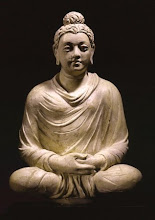
သုစရိုက္တရား (၁၀)ပါး Ten Wholesome Behaviors 十大有益健康的行為
ကာယကံ = ကိုယ္လက္ လႈပ္ရွားမႈ ကာယဝိညတ္ျဖင့္ အမ်ားအားျဖင့္ ျပဳလုပ္ေသာ အမႈ၊
ဝစီကံ = ႏႈတ္အမႈအရာ ဝစီဝိညတ္ျဖင့္ အမ်ားအားျဖင့္ ျပဳေသာအမႈ၊
မေနာကံ = စိတ္ကူးႀကံစည္၍ ျပဳလုပ္အပ္ေသာ အမႈ
သုစရိုက္ ၁၀ ပါး
အျပစ္ရွိဘဲ ေကာင္းက်ိဳးေပးတတ္ေသာ ကံကို ကုသိုလ္ကံဟု ေခၚ၏ ျမင့္ျမတ္ေသာ အမူအက်င့္ ျဖစ္သည့္အတြက္ သုုစရိုက္ဟုလည္း ေခၚ၏။
ကာယကံ ၃-ပါး၊ ဝစီကံ ၄-ပါး၊ မေနာကံ ၃-ပါးဟူ၍ သုစရိုက္ ၁၀-ပါးရွိ၏။
(၁) ကာယကံ ၃-ပါး
(၁) ပါဏာတိပါတ ၀ိရတီ= သတၱဝါတို႔ကို ေသေစလိုေသာ ေစတနာျဖင့္ သတ္ျဖတ္ျခင္းမွ ေရွာင္ၾကဥ္မႈ။
(၂)အဒိႏၷာဒါန ၀ိရတီ= သူတစ္ပါးတို႔၏ ဥစၥာကို ခိုးဝွက္တိုက္ခိုက္လွည့္ပတ္ယူျခင္းမွ ေရွာင္ၾကဥ္မႈ။
(၃) ကာေမသုမိစၧာစာရ ၀ိရတီ= ကာမဂုဏ္တို႔၌ ကဲ့ရဲ့ထိုက္စြာ ယုတ္ယုတ္မာမာက်င့္ျခင္းမွ ေရွာင္ၾကဥ္မႈ။
၂။ ဝစီကံ ၄ ပါး
(၄) မုသာဝါဒ ၀ိရတီ= မဟုတ္မမွန္ လိမ္လည္၍ ေျပာဆို္ျခင္းမွ ေရွာင္ၾကဥ္မႈ။
(၅) ပိသုဏဝါစာ ၀ိရတီ= ေခ်ာပစ္ကုန္းတိုက္ေသာ စကားကိုေျပာဆို္ျခင္းမွ ေရွာင္ၾကဥ္မႈ။
(၆)ဖရုသဝါစာ ၀ိရတီ= ၾကမ္းတမ္းယုတ္မာေသာ စကားကိုေျပာဆိုျခင္းမွ ေရွာင္ၾကဥ္မႈ။
(၇)သမၹပၸလာပ = ပိန္ဖ်င္းေသာစကား အတင္းအဖ်င္းစကားကို ေျပာဆိုျခင္းမွ ေရွာင္ၾကဥ္မႈ။
၃။ မေနာကံ ၃-ပါး
(၈) အနဘိဇၩာ = သူတစ္ပါး၏ ဥစၥာကို မတရားယူရန္ ႀကံစည္္ျခင္းမွ ေရွာင္ၾကဥ္မႈ။
(၉) အဗ်ာပါဒ = သူတစ္ပါး၏ အသက္ႏွင့္ စည္းစိမ္ ပ်က္စီးရန္ ႀကံစည္္ျခင္းမွ ေရွာင္ၾကဥ္မႈ။
(၁၀) သမၼာဒိ႒ိ = ကံ-ကံ၏ အက်ိဳးကို ယံုၾကည္၍ မွန္ကန္စြာ ယံုၾကည္မႈ။
ဒုစရိုက္ လြန္က်ဴးေသာ စိတ္မ်ား
(၁) ပါဏာတိပါတ၊ ဖရုသဝါစာ ႏွင့္ ဗ်ာပါဒတို႔ကို ေဒါသမူစိတ္ျဖင့္ က်ဴးလြန္ၾကကုန္၏။
(၂) ကာေမသုမိစၧာစာရ၊ အဘိဇၩာႏွင့္ မိစၧာဒိ႒ိတို႔ကို ေလာဘမူစိတ္ျဖင့္ က်ဴးလြန္ၾကကုန္၏။
(၃) အဒိႏၷာဒါန၊ မုသာဝါဒ၊ ပိသုဏဝါစာႏွင့္ သမၹပၸလာပ တို႔ကို ေလာဘမူစိတ္+ေဒါသမူစိတ္ ၂-ပါးတို႔ျဖင့္ က်ဴးလြန္ၾကကုန္၏။
ဥပမာ - မိမိႏွင့္ သားမယားတို႔၏ ငတ္မြတ္မႈကို ေျဖရွင္းရန္အလို႔ငွာ သူတစ္ပါးပစၥည္းကို ခိုးယူျခင္းသည္ ေလာဘမူစိတ္ျဖင့္ အဒိႏၷာဒါနကံကို က်ဴးလြန္ျခင္းျဖစ္၏။ မခံခ်င္စိတ္၊ ရန္ၿငိဳးစိတ္ျဖင့္ သူတစ္ပါး ပ်က္စီးေၾကာင္းကို ရည္ရြယ္၍ သူ႔ဥစၥာကို ခိုးဝွက္ လုယူျခင္းသည္ ေဒါသမူစိတ္ျဖင့္ အဒိႏၷာဒါနကံကို က်ဴးလြန္ျခင္း ျဖစ္၏။
မွတ္ခ်က္။ ။ အေကာင္းအဆိုးရည္ရြယ္ခ်က္(ေစတနာ) တစ္ခုခုျဖင့္ တက္ၾကြထက္သန္ေသာစိတ္ဦးေဆာင္လ်က္ လုပ္သည့္အလုပ္သည္ ကံေျမာက္၏။ အေကာင္းအဆိုး ေစတနာမပါဘဲ မသိသာ မထင္ရွားေသာ သာမန္စိတ္ျဖင့္ ျပဳလုပ္ေသာ အလုပ္သည္ ကံေျမာက္ေခ်။ ကမၼ ဟူေသာပါဠိမွဆင္းသက္လာေသာ "ကံ"သည္ "အလုပ္" ကိုလည္း ေခၚ၏။ "ေစတနာ"ကိုလည္း "ကံ" ဟုေခၚ၏။
သုစရိုက္(၁၀)ပါးဆိုတာကေတာ့ ဒုစရိုက္(၁၀)ပါးကို ေရွာင္ၾကည္လိုက္ျခင္းျဖင့္ ရတဲ့ ကုသိုလ္အက်ိဳးပါပဲ။
Ten Wholesome Behaviors
su - wholesome + carita - behaviors = sucarita - wholesome behaviors
== Three Wholesome Behaviors Committed by Bodily Action ( Sucarita Kāya-kamma )
1. pāṇātipāta viratī - abstaining from killing another living being.
2. adinnādana viratī - abstaining from stealing, taking someone else's belongings without their permission.
3. kāmesu micchācāra viratī - abstaining from sexual misconduct, engaging unabashedly in sexual relations to the point of being blameworthy.
== Four Wholesome Behaviors Committed by Verbal Action ( Sucarita Vacī-kamma )
4. musāvāda viratī - abstaining from speaking lies, saying what is not true.
5. pisuṇavācā viratī - abstaining from slandering (saying words that will divide two people who love each other and/or influence one or the other to get them to like you better than they like each other).
6. pharusavācā viratī - abstaining from speaking harshly or swearing.
7. samphappalāpa viratī - abstaining from talking frivolously or vainly (speaking words that have neither essence nor underlying deep meanings that are true and correct).
Three Wholesome Behaviors Committed by Mental Action (Sucarita Mano-kamma)
8. anabhijjhā - not becoming covetousness, jealousy, thinking that it would be great to have something that belongs to someone else and scheming to get it in an unwholesome manner.
9. abyāpāda - not harboring ill will, thinking that it would be great if someone died, became injured or destroyed.
10. sammādiṭṭhi - right view (believing in Kamma and its results, i.e. that wholesome deeds cause wholesome results and unwholesome deeds cause unwholesome results.)
su - wholesome + carita - behaviors = sucarita - wholesome behaviors 蘇 -健康+ 凱伊黛 -行為= sucarita -健康的行為
三有益健康的行為所犯的身體動作(Sucarita克耶邦,業力 )
1. pāṇātipāta viratī - 棄權殺害另一個生命。
2. adinnādana viratī -偷竊棄權,以別人的財物未經其許可。
3. kāmesu micchācāra viratī -棄權邪淫,公然從事性關係,這一點被責備。
四有益健康的行為所犯的言語行為(Sucarita的Vaci,業力 )
4. musāvāda viratī - 棄權從理論上講謊言,說什麼是不正確的。
5. pisuṇavācā viratī - 棄權誹謗(說的話,將分兩個人誰愛對方和/或影響一個或另一個讓他們比他們更喜歡你喜歡對方)。
6. pharusavācā viratī - 從理論上講棄權嚴厲地或宣誓就職。
7. samphappalāpa viratī - 棄權說話輕率或妄想(說的話有沒有本質,也不是潛在的深層含義是真實和正確的)。
三有益健康的行為所犯的心理活動(Sucarita馬諾,業力 )
8. anabhijjhā -不成為貪婪,嫉妒,認為這將是巨大的,有一些屬於別人,圖謀把它在一個不健康的方式。
9. abyāpāda - 而不是窩藏惡意,認為這將是巨大的,如果有人死亡,受傷或成為破壞。
10. sammādiṭṭhi - 右視圖(相信在業力 ,其結果,即該行為造成健康有益成果,不健康的行為導致不健康的結果。)
ပုညၾကီရိယာ၀တၳဳ (၁၀)ပါးTen Wholesome Deeds十大有益健康的事蹟
ပုည၊ ကုသိုလ္ေကာင္းမႈ။ ၾကိရိယ၊ ျပဳလုပ္ျခင္း။ ၀တၳဳ၊ေကာင္းက်ိဳးျဖစ္ေစေသာအရာမ်ား။
၁။ ဒါန၊ ေပးကမ္းလွဴဒါန္းျခင္း။
၂။ သီလ၊ ေစာင့္ထိန္းျခင္း၊ ေရွာင္ၾကဥ္ျခင္း။ (၅ ပါးသီလ၊ ဂပါးသီလ၊ ၉ပါးသီလ စသည္)
၃။ ဘာ၀နာ၊ ပြါးမ်ားအားထုတ္ျခင္း။ (သမထ၊ ၀ိပႆနာ စသည္)
၄။ အပစာယန၊ ရုိေသထိုက္သူကို ရုိေသျခင္း။ (ရတနာ၃ပါး၊ မိဘ၊ ဆရာ၊ အသက္ၾကီးသူ၊ ဂုဏ္ၾကီးသူ။)
၅။ ေ၀ယ်ာ၀စၥ၊ အကူအညီလိုအပ္သူမ်ားကို ကူညီျခင္း ႏွင္း ရတနာ၃ပါး၊ မိဘ၊ ဆရာတို႔၏ အလုပ္ကို ကူညီ ေဆာင္ရြက္ေပးျခင္း။
၆။ ပတၱိဒါန၊ မိမိျပဳလုပ္ေသာ ကုသိုလ္ေကာင္းမႈ၏ အဖို႔ကို အမွ်ေ၀ျခင္း။
၇။ပတၱာႏုေမာဒနာ၊ သူတစ္ပါးျပဳလုပ္ေသာ ကုသိုလ္ေကာင္းမႈကို ၀မ္းေျမာက္၀မ္းသာ သာဓုေခၚျခင္း။
၈။ ဓမၼႆ၀န၊ တရားနာယူျခင္း၊ တရားစာဖတ္ျခင္း။ တရားေဆြးေႏြးျခင္း။
၉။ ဓမၼေဒသနာ၊ တရားေဟာေျပာျခင္း။ တရားစာေရးျခင္း။
၁၀။ ဒိ႒ိဇုကမၼ၊ အယူေျဖာင့္မတ္ မွန္ကန္ျခင္း။ (ကမၼႆကတာ သမၼာဒိ႒ိဉာဏ္ရွိျခင္း။)
Ten Wholesome Deeds that One Should Do Which Bring Happiness and Peace
puñña - wholesome deeds + kiriya - that one should do + vatthu - base which bring happiness and peace;
puññakiriyavatthu = wholesome deeds that one should do which is the basis to bring happiness and peace.
Wholesome deeds that one should genuinely do in order to build a foundation for wholesome mental states in this very life and for happiness and peace in the next are called puññakiriyavatthu.
1. dāna - giving generously.
2. sīla - observing and keeping the moral precepts.
3. bhāvanā - cultivating one's mental development through concentration meditations, such as observing the virtues of the Buddha, and through insight meditation.
4. apacāyana - paying respect to those deserving of respect.
5. veyyāvacca - helping others with whatever they need as they do wholesome deeds.
6. pattidāna - sharing the merits of one's good deeds with others.
7. pattānumodana - to gladly call out, "Sadhu" (well done!) when someone else is sharing merits.
8. Dhammasavana - listening to Dhamma talks, talks that expound the Buddha 's teachings.
9.Dhammadesanā - giving talks about the Dhamma without expecting material things or gifts inn return.
10. diṭṭhijukamma - holding the right view (believing in Kamma and its results, i.e. that wholesome deeds cause wholesome results and unwholesome deeds cause unwholesome results.)
十大有益健康的事蹟的人應該這樣做能帶來幸福與和平
puñña -有益健康的事蹟+ kiriya -一個人應該做+ vatthu -基地帶來幸福與和平;
puññakiriyavatthu = 健康的事蹟,一個應該做的是基礎帶來幸福與和平。
有益健康的事蹟,一個真正應該做的,以建立一個健康的心理狀態基礎在這個非常的生活和幸福與和平的未來被稱為puññakiriyavatthu。
1. 1。 dāna -達納 -慷慨解囊。
2. 2。 sīla - 西拉 -觀察和保持道德戒律。
3. 3。 bhāvanā -培養一個人的心智發展,通過集中冥想,觀察的優點,如佛 ,並通過深入的冥想。
4. apacāyana - -參拜那些值得尊重。
5. veyyāvacca -幫助其他人,他們需要什麼,因為他們做的健康行為。
6. pattidāna - 共享的優點,一個人的事蹟與他人。
7. pattānumodana - 要樂於叫出來,“ 苦行僧 ”(幹得好!)當別人正在共享的優點。
8. Dhammasavana -聽佛法講座,講座的闡述佛陀的教誨。
9. Dhammadesanā - 讓談到了佛法 ,不期待物質的東西或禮品店的回報。
10. diṭṭhijukamma - 控股權視圖(相信在業力 ,其結果,即該行為造成健康有益成果,不健康的行為導致不健康的結果。)
